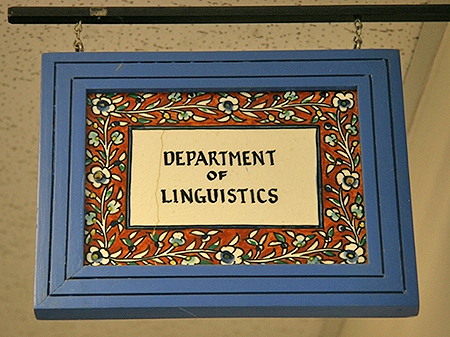
Linguistics ETDs
Publication Date
Summer 7-16-2018
Abstract
What is really needed to make a machine into a verisimilitude of a language using human? Clearly there are holes in human communication, missing linguistic forms, and yet we manage to convey meaning. The under-determinacy of language seems to play an integral part in the adaptive system that all humans possess for perceiving, processing and producing language with shared semantic value. We invent symbols that index the missing contextual elements, allowing partial production of linguistic units. A machine would require the same abilities of indexicality and inventiveness. In this pilot study, I attempt to understand how semantic values shift and align during conversation with the further hope of developing a model for a computer to be able to interact with a human. I draw on the data available from YouTube closed-caption text, and build a corpus of discourses with the aim of developing meta-data in the form of dimensional values. This data represents the temporal flow of usage events with a semantic value system that seems to prod the activation of more usage events, align or misalign coordinated meaning during the semiotic cycle. I finally propose a usage-based data driven application, Chatbot that stores the tokens of conversation between a person and the computer as symbolic units for memory and exemplars for construction.
Language
English
Keywords
under-determinacy of language, shared semantic values, machine learning computer model of semantic value shift and alignment, semiotic cycle, usage-based data-driven computer application
Document Type
Thesis
Degree Name
Linguistics
Level of Degree
Masters
Department Name
Department of Linguistics
First Committee Member (Chair)
Sherman Wilcox
Second Committee Member
Melissa Axelrod
Third Committee Member
Jill Morford
Recommended Citation
Arnold, Gregory Richard. "A Path To Alignment." (2018). https://digitalrepository.unm.edu/ling_etds/64
